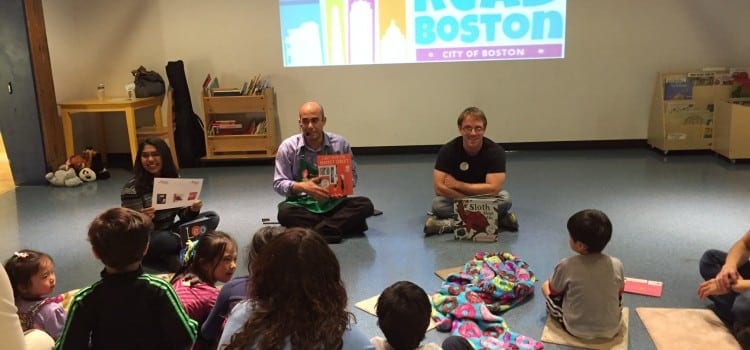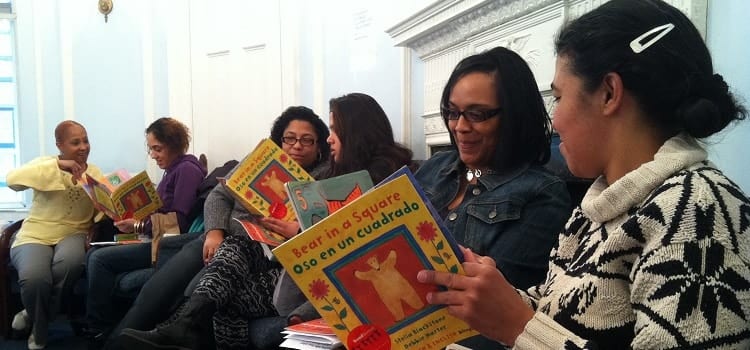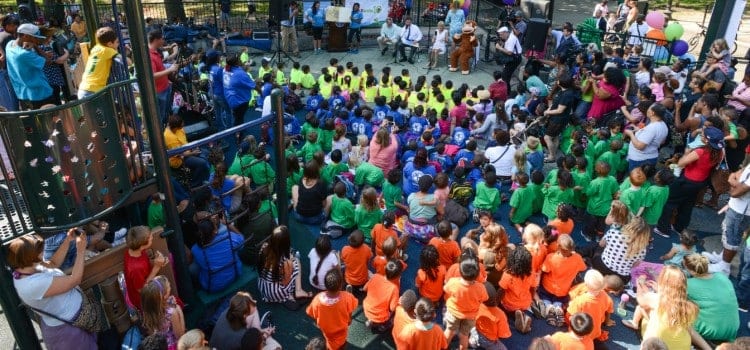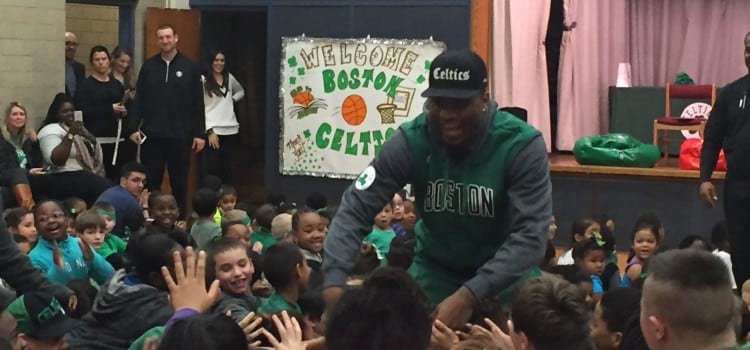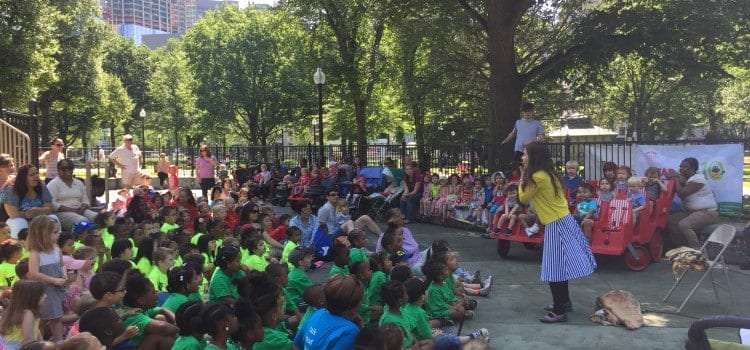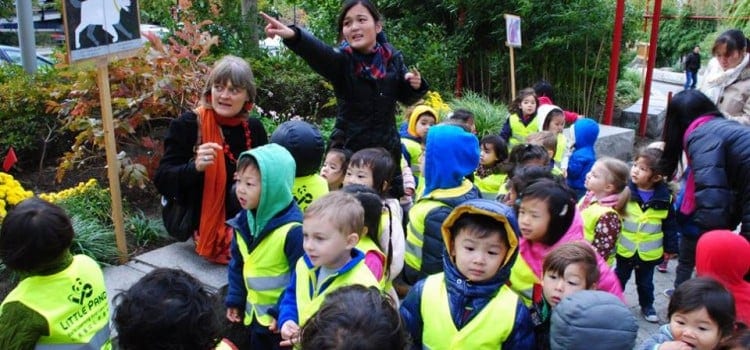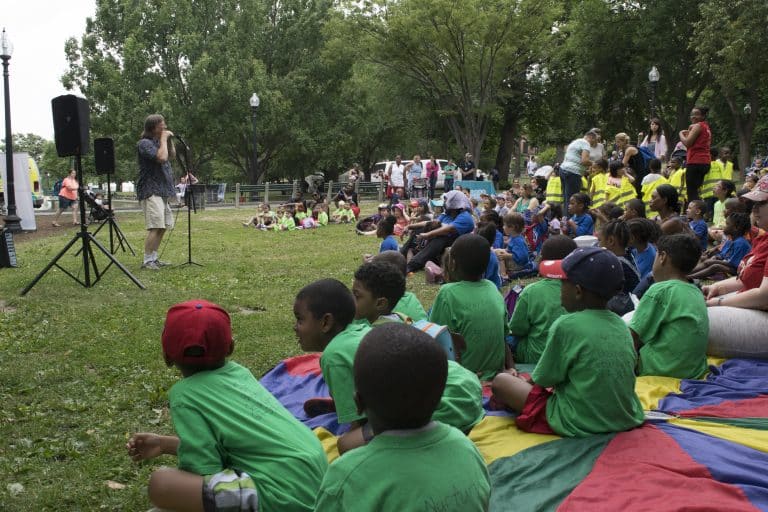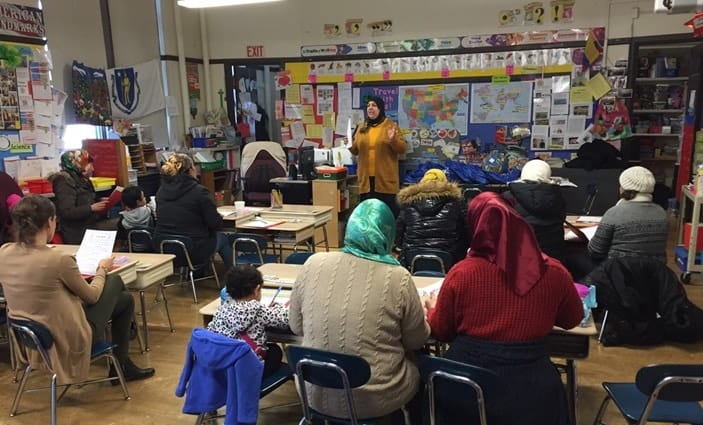
ReadBoston: Getting Kids Access to the World of Words
ReadBoston knows that one of the main obstacles to academic success is arriving at that first day in school without the necessary pre-reading skills. So does Kars4Kids. Which is why ReadBoston is one of Kars4Kids’ newest small grant recipients.
A nonprofit organization, ReadBoston is dedicated to improving early literacy skills in very young, inner-city Bostonians. It’s a mission we support because at Kars4Kids we know that the problem of underdeveloped early literacy skills is especially stark in low-income, inner-city homes. That may be because there are no books at home. Or it may be because parents are not around much. They may be too busy with work, or sleeping after a night shift, to spend time reading or reciting nursery rhymes to their little ones.
Even when parents are home, they may be too tired and worn out from work and housework to do any of these things. As a result, these children are not exposed to language in any meaningful way, leaving them ill-prepared for school. And so, the cycle of poverty goes ’round, with children doomed to academic failure before they have even begun.
This is where ReadBoston comes in, offering support, information, and resources that can really make a difference. ReadBoston knows that it is never too early to start a child on the path to academic success. The effort begins the day you bring your baby home from the hospital. We spoke to Deputy Director of ReadBoston Kerri Schmidt, to find out more about how ReadBoston is making a difference for the children of Boston.
Kars4Kids: When and why was ReadBoston founded?
Kerri Schmidt: ReadBoston is the city’s only comprehensive early literacy program, reaching Boston’s children at all points in their day, all year long. We provide schools, childcare programs, community-based organizations, and families with the resources they need to set Boston’s children on the path to reading success.
ReadBoston was founded in 1995 as a non-profit children’s literacy organization and has become a catalyst for change in all of Boston’s communities by funneling resources, innovative programs, books, and best practices into Boston neighborhoods. A key to our success is the ability to develop strong partnerships with other organizations that serve children and families.
Many of the children entering Kindergarten in Boston are already at risk for academic failure because they lack the fundamental skills that they need to succeed in school. Unfortunately, research shows that children who start behind often stay behind. Our work is critical to changing the literacy rates and academic success of Boston children. ReadBoston feels that by effecting change at this early stage in children’s lives, we will improve the quality of life for individuals and families in Boston.
Kars4Kids: Your website details three programs for children from birth to five years. Should parents be thinking about literacy from the time a child is born? What can new parents do to help their babies develop literacy skills?
Kerri Schmidt: Parents and adult family members are a child’s first and most important teachers. Many of Boston’s parents are multilingual and hungry for new information about reading and talking with their children in their home language. The early years are about brain development and it’s important for parents to speak with their children in their most fluent language. Young children are highly adept at learning multiple languages at once and becoming a bilingual person begins at home.
Here are some important literacy facts ReadBoston shares with parents and adult family members. This information is available on our website in 9 different languages.
- The human brain develops the fastest (up to 80% of its capacity) during the first three years of life.
- Babies can begin listening to conversations anywhere from the time they are born up to 18 months.
- On average, toddlers learn ten new words each day.
- The size of a child’s vocabulary determines later reading success.
- Kindergarteners should have 5000 to 8000 words in their vocabulary.
- 1/3rd of children enter Kindergarten are unable to recognize their letters.
Kars4Kids: How is ReadBoston empowering caregivers to go beyond their charges’ physical care to broaden their pre-literacy skills, as well?
Kerri Schmidt: ReadBoston’s Growing Readers initiative provides professional development trainings for child care educators to improve the quality of literacy interactions between adults and young children. This program also develops quality multilingual [child care] classroom lending libraries so families with young children can borrow books, build literacy development, and share the joy of reading at home. Like parents, caregivers of young children, newborn to 5 years old, are critically important adults in a young child’s life.
Kars4Kids: You mentioned that 1/3 of children enter kindergarten unable to recognize their letters. Is this a world statistic? Specific to Boston?
Kerri Schmidt: This is a United States statistic. However, a 2010 survey by the University of Victoria in Vancouver B.C. found 1/3 of children entering Kindergarten were not able to recognize their ABC’s.
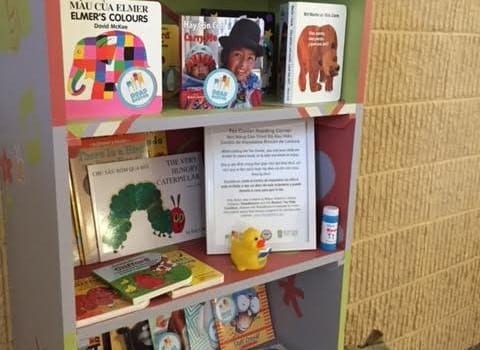
Kars4Kids: Tell us about your partnership with the Boston Celtics. Why the Celtics as motivator? Does it work?
Kerri Schmidt: ReadBoston’s Read to Achieve program is a partnership with Boston Celtics and encourages kindergarten to 5th grade students in the Boston Public Elementary Schools (BPS) to complete monthly goals of reading 20 minutes per day, 5 days per week. These reading goals encourage family engagement and match the national benchmark for achieving reading success. This year the Read to Achieve program served over 3,800 Boston Public Elementary School students in 12 schools throughout Boston.
BPS students who participate in the Read to Achieve program receive incentive prizes including Celtics-branded school supplies, tickets to basketball games, and special events with Boston Celtics players. Students are also encouraged to complete reading comprehension assignments for additional prizes. Read to Achieve is a very popular and successful program for Boston’s sports-loving residents.
Kars4Kids: Tell us about the Storymobile.
Kerri Schmidt: Storymobile is a six-week, citywide partnership with over 55 summer programs and public locations. Professional storytellers provide children with interactive stories, and every child that attends takes home a new book. The goal of the program is to promote literacy activities during the summer months, which is a time when children are away from school and can experience an academic slide. The Storymobile BookBike is an innovative addition to our Storymobile program that brings literacy activities and new books to children in an environmentally-friendly and sustainable way.
This Summer, over a six-week period, ReadBoston’s Storymobile program gave away over 24,000 new books to children across Boston.
[You can read] a recent write up of this year’s Storymobile program at the Tadpole playground on the Boston Common, one of our 55 public locations across the city, HERE.
Kars4Kids: Every child gets a new book to take home? For keeps? Why is that important?
Kerri Schmidt: Every child who attends a Storymobile session gets to choose a book to keep.
Research shows that low-income children have little access to high quality reading materials. In middle-income neighborhoods the ratio of books per child is 13 to 1, in low-income neighborhoods, the ratio is 1 age-appropriate book for every 300 children (Neuman and Dickinson, 2006). Without access to books, children are unable to develop the vocabulary and reading skills crucial for their success in school. ReadBoston provides low-income children in Boston access to these high-quality reading materials. In addition, the Storymobile’s mobility enables us to reach children who may not have regular access to a library.
Kars4Kids: What can parents do to prevent summer learning loss without making children feel like they’re in school year round? How should summer reading activities differ from regular reading activities?
Kerri Schmidt: Children who live in low-income communities are more likely to lose ground in reading over the summer than their higher-income peers (Entwisle and Olson, 2007). In addition, students typically score lower on standardized tests at the end of summer vacation than they do on the same tests at the beginning of summer vacation (Cooper, 1996). In fact, a summer reading setback is a primary source of the reading achievement gap. Summer setbacks explain approximately 80 percent of the reading achievement gap between low and high-income students at age 14 (Entwisle and Olson, 2007). Most alarming is that summer learning loss appears to be cumulative, contributing significantly to the achievement gap (RAND, 2011). ReadBoston’s Storymobile program provides high quality literacy programming to low-income children throughout Boston in the summer, when children are most at risk.
Summer reading should be pleasurable and that often involves being able to choose what you are reading. ReadBoston’s summer Storymobile brings the power of storytelling and high quality new books to children across Boston when children who are away from school frequently experience an academic slide. Research shows that exposing children to storytelling is a powerful literacy strategy and provides opportunities for learning when children are away from the classroom. Storytelling helps children develop language and literacy skills. Through hearing stories and participating in storytelling, children, especially young children, bolster their vocabulary comprehension and verbal expression, which ultimately improves reading and leads to strong language and communication skills. Having the opportunity to personally choose a book invites children to invest in their experience and they are more likely to read and enjoy what they have chosen.
Kars4Kids: What is the most important thing a parent can do to foster a love of reading in his or her children?
Kerri Schmidt: Young children want the attention of the people who care for and love them and will mimic what is modeled. So sit down with your child and select a picture book. Spend a little one-on-one time reading and talking together about the story, and make room to listen to what he or she has to say about the story. By sharing the pleasure of reading with their child, parents help their children build a positive relationship with books.
Research strongly indicates that reading success is directly linked to students’ ability to see reading as fun. “Students who reported reading for fun had higher average reading proficiency scores than students who reported never or hardly ever reading for fun” (Hopkins, 2003). The Storymobile program focuses on the art of storytelling to expose children to the magic and wonder of stories. Listening to stories can be exciting and entertaining.
Kars4Kids: Has the easy access to technology affected pre-literacy and literacy skills?
Kerri Schmidt: Technology is a part of our daily lives and it is important for adults to nurture their child’s early literacy development by providing face to face conversation, reading books together, and unplugging for some quality one-on-one time with each other. Technology should be used to support early literacy develop but can never be a substitute for the power of personal interaction and engagement with a loving and caring adult.
ReadBoston is the city’s only comprehensive early literacy program, providing families the resources they need to get kids reading.
Kars4Kids: What’s next for ReadBoston?
Kerri Schmidt: ReadBoston is excited to support two new initiatives in the City of Boston by providing books, materials and programmatic support.
The first is the Boston Basics campaign: “Five fun, simple, and powerful ways that every family can give every child a great start in life.” 1. Maximize Love and Manage Stress; 2. Talk, Sing, and Point; 3. Count, Group and Compare; 4. Explore through Movement and Play; and 5. Read and Discuss Stories. Visit the Boston Basics website for more information.
The second is Boston Saves, Mayor Martin J. Walsh’s Children’s Savings Account (CSA) program. This program has a dual focus: (1) to develop and promote a “college-going culture,” and (2) to facilitate financial inclusion and empowerment for low-income families. A Boston Saves CSA account will be given to every Kindergarten (K2) student in Boston’s district and charter schools. The pilot program will launch in the fall of 2016 and will begin to scale in fall 2019.
ReadBoston will provide both partnerships with books, materials, and family engagement support.
